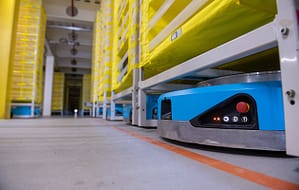With the upcoming Brexit deal looming over the horizon, economic and environmental experts predict an interference in the million-dollar-a-year waste export business in the European Union.
With trash pilling up within our borders, insiders say the environment faces serious, irreversible harm, and the councils look to incur significant extra costs.
The government has made it clear that firms have the responsibility to explore viable solutions.
A statement released by the government agency’s spokesperson said, “Businesses engaged in the waste export market are encouraged to take into account and draft an array of alternatives in the event of any disturbance along our borders.”
Rubbish Waste, one of the rubbish collection firms from London, says that they will do their utmost to help in any way until this issue is resolved. The problem is recognized as a major one and is greatly interfering with London’s plans of a cleaner future.
Our reporters were able to view internal documents, which list the council’s Brexit plan. These documents, seen and backed by insider sources in the waste industry, reveal an elevated level of apprehension among our local leaders when it comes to the waste issue. We learn that local authorities rate the probability of a significant disturbance as highly likely in each of their respective emergency Brexit plans.
A warning from the United Kingdom’s waste industry trade body indicates that a no-negotiation Brexit is likely to result in trash from highly populated regions such as the Southeast being transported to landfills in North England.
A significant amount of domestic waste from the UK is exported annually to the European Union for salvage or ending up as waste-derived fuel.
An internal memo from the Southampton City Council states that obstruction of our docks “could result in recycling-banks and waste transfer stations becoming full and eventually shutting down”. Should that come to pass, recyclables may end up channeled to landfills or waste-extracting fuel depots.
The main cause of worry concerns the process of transporting black-binned household refuse to Germany or Scandinavia being halted physically or held up by crowding at the ports after Brexit.
It may end up uneconomical due to a decline in the market price of the British Pound and the constraint of WTO tariffs as the result of a no-negotiation fallout. The classification of the trade is unclear whether it falls under exporting goods i.e. a kind of fuel or importation of a service i.e. garbage preparation.
A front-runner in the market, Suez, claims this will probably lead to a decline in the U.K’s ongoing waste preparation objectives.
“We have studied the different consequences of Brexit, and we agree that there will be a reduction in performance targets which we are all striving to accomplish,” said the developmental administrator at Suez, Stuart Hayward-Higham, in a televised interview.
He goes on to state, “The result of a no-negotiation Brexit is that we are forced in turn to put more to landfill”.
However, due to crowding at the ports or the cost burden on Suez’s customers, Mr. Hayward-Higham admits that finding a substitute in the short to medium term will be callous.
No-deal Brexit papers show the councils illustrate several short-term liabilities to garbage collation, from congestion locally to complications with the fuel supply. They then proceed to list several methods to minimize such negative effects.
Certain councils have turned to keeping surplus refuse-bags. In one incident, modern garbage lorries were facilitated and pushed through in anticipation of the Brexit deadline on March.
An example is the Braintree Council, which on April, catalogued as dangerous the domino effect of fuel and transportation issues. It went on to state that it may be forced to “contemplate reducing the appropriation of bin bags per home to augment supplies”.
The Sevenoaks Council has proposed a parking lot that will be utilized as a provisional waste collection site. It said traffic “leading to late or no collections will impact the community stockpiling waste in their gardens or streets”.
The Milton Keynes town council has requested waste sites to accommodate an increased quantity of refuse.
Executive Director of the ESA, Jacob Hayler, said that the councils’ apprehension centered on worst-case transport congestion and fuel problems.
Nevertheless, Mr. Hayler admits trash was problematic to stash for long periods “so you can’t have it all just pilling up at the docks”.
He said sustainable solutions, like setting up local “garbage recycling” factories, are time intensive projects, hence landfills are the sole remaining alternative.
Likewise, he advised that dormant landfill sites mostly around Northern England, would have to up the ante. When it comes to waste, the lion’s share is generated by densely populated areas in the Southerly Eastern regions. Unfortunately, the only access these areas have to landfill territory is extremely limited.
The government announced adherence to the new “Circular Economy Package” ceiling. Brainchild of the European Union, where a certain percent of household waste, 10% in this case, will end up in landfills before the year 2035, in spite of Brexit and it’s effect.






Leave a Comment